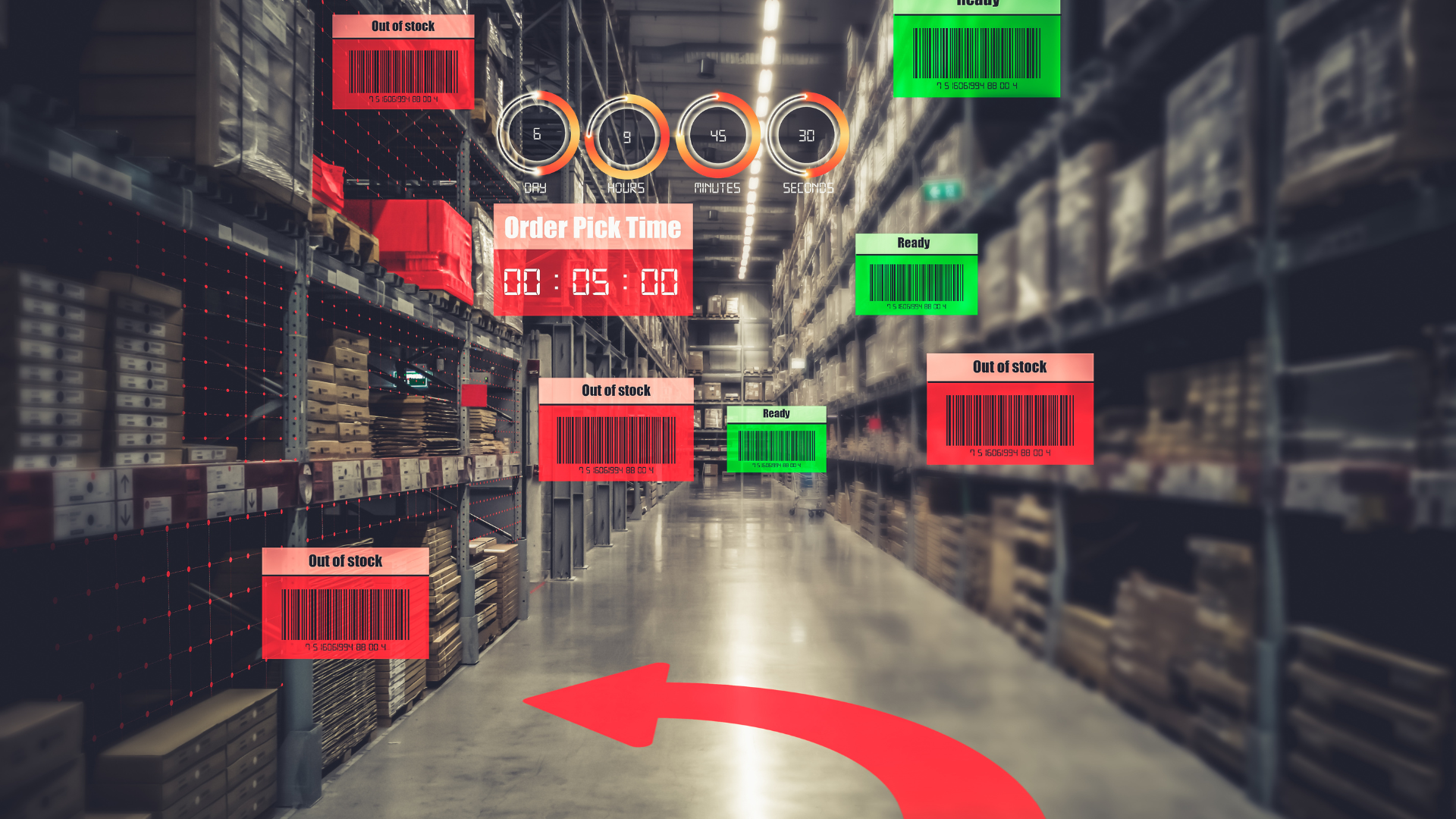MES System Examples
How Much Does a MES System Cost?
How much does an MES System cost? The cost of an MES System can vary significantly based on several factors, including the size of the manufacturing operation, the complexity of the processes, and the specific features required. Typically, MES systems can range from tens of thousands to several hundred thousand dollars. Additionally, MES System Integration costs should be considered, as integrating the MES with existing enterprise systems like ERP and supply chain management can add to the overall expense. These integration efforts ensure seamless data flow and real-time communication, enhancing the efficiency and effectiveness of the manufacturing operations. It's crucial for businesses to evaluate their specific needs and budget to determine the most cost-effective MES solution.
MES System Examples
- Siemens SIMATIC IT Unified Architecture
- Rockwell Automation FactoryTalk ProductionCentre
- Honeywell Manufacturing Execution System
- ABB Ability Manufacturing Operations Management
- Dassault Systèmes DELMIA Apriso
MES Software Examples
- Siemens Opcenter Execution
- Rockwell Automation FactoryTalk MES
- Honeywell Optivision
- ABB Ability MES
- DELMIA Apriso Production Management

Is SAP an MES System?
SAP is not an MES (Manufacturing Execution System) but an ERP (Enterprise Resource Planning) system. While SAP provides comprehensive solutions for various business functions such as finance, human resources, and supply chain management, it does offer MES capabilities through its SAP Manufacturing Execution module. This module integrates with SAP's ERP system to provide real-time monitoring, control, and optimization of manufacturing processes. However, the core SAP system itself is primarily focused on broader enterprise management rather than the specific, detailed execution of manufacturing operations that a dedicated MES system handles.
SAP and MES
MES is designed to manage and control production processes on the factory floor, providing real-time data and monitoring to optimize manufacturing operations, track product lifecycles, and ensure quality control. On the other hand, SAP (Systems, Applications, and Products) is a comprehensive enterprise resource planning (ERP) software that integrates various business processes, including finance, human resources, supply chain management, and more. While MES focuses specifically on manufacturing operations, SAP provides a broader scope of business management solutions, making it essential for overall enterprise planning and resource management. Together, they can work in tandem to provide a seamless and efficient workflow from production to business operations.
Which Industries Use MES?
MES (Manufacturing Execution Systems) are utilized across various industries to optimize production processes and enhance efficiency. Key industries that use MES include automotive, where it's essential for managing complex assembly lines and quality control, and aerospace and defense, which require intricate production processes and strict regulatory compliance. In pharmaceuticals, MES helps maintain product quality, traceability, and adherence to regulations, while in the food and beverage industry, it ensures consistent product quality and safety. The electronics and semiconductor industries benefit from MES for precise manufacturing and high-quality standards. Similarly, the chemicals industry uses MES to manage batch production and safe material handling. Medical devices rely on MES for stringent quality control and regulatory compliance, and consumer packaged goods (CPG) companies use it for efficient production and inventory management. Additionally, the oil and gas industry employs MES to optimize production and manage complex operations, and the textiles industry uses it to handle production workflows and ensure fabric quality. Overall, MES is critical for improving operational efficiency, maintaining quality standards, and ensuring regulatory compliance across these diverse sectors.
Critical Manufacturing MES
Critical Manufacturing MES is a comprehensive Manufacturing Execution System designed to manage and optimize complex manufacturing processes. It provides real-time visibility, control, and coordination of production activities, ensuring high efficiency and quality. This MES is particularly suited for industries with stringent regulatory requirements and high precision needs, such as semiconductor, electronics, medical devices, and aerospace. By integrating advanced features like real-time data collection, process automation, and analytics, Critical Manufacturing MES helps manufacturers streamline operations, reduce downtime, improve product quality, and respond swiftly to market changes and customer demands. Its robust and flexible platform supports scalability and adaptability, making it an essential tool for modern manufacturing environments.
MES Software Examples
- Siemens Opcenter Execution
- Rockwell Automation FactoryTalk MES
- Honeywell Optivision
- ABB Ability MES
- DELMIA Apriso Production Management
Does Siemens Have MES?
Siemens offers a comprehensive MES (Manufacturing Execution System) solution known as Siemens Opcenter Execution. This MES software provides real-time production monitoring, control, and optimization, enabling manufacturers to improve efficiency, ensure product quality, and streamline operations. Siemens Opcenter Execution integrates seamlessly with other enterprise systems, offering advanced features such as data collection, process automation, and analytics. This powerful tool supports various industries, helping manufacturers enhance their production processes, reduce downtime, and respond swiftly to market changes and customer demands.
Siemens MES
Siemens MES, known as Siemens Opcenter Execution, is a comprehensive Manufacturing Execution System designed to optimize and manage production processes in real-time. It provides manufacturers with tools for monitoring, controlling, and streamlining manufacturing operations, ensuring high efficiency and product quality. Siemens Opcenter Execution integrates seamlessly with other enterprise systems, enabling advanced data collection, process automation, and analytics. This MES solution supports various industries, helping manufacturers reduce downtime, improve operational performance, and swiftly respond to market demands and changes. Its robust and flexible platform makes it an essential tool for modern manufacturing environments.
MES Software Vendors
MES software vendors are companies that develop and provide Manufacturing Execution Systems (MES) to help manufacturers optimize production processes, ensure quality control, and improve operational efficiency.
MES Vendor List
These vendors offer a range of MES solutions tailored to different industries and manufacturing needs, providing tools for real-time monitoring, data collection, process automation, and analytics.
- Siemens
- Rockwell Automation
- Honeywell
- ABB
- Dassault Systèmes
- GE Digital
- PTC
- Schneider Electric
- SAP
- Oracle
Leading MES Software Providers
The leading MES software providers are:
- Siemens - Known for its Siemens Opcenter Execution, which provides robust tools for real-time production monitoring and optimization.
- Rockwell Automation - Offers FactoryTalk MES, a comprehensive solution for managing and controlling manufacturing operations.
- Honeywell - Provides Honeywell MES, focusing on enhancing product quality and process efficiency.
- ABB - Known for ABB Ability MES, which integrates seamlessly with business systems to improve operational performance.
- Dassault Systèmes - Offers DELMIA Apriso, a flexible and scalable MES solution suitable for diverse manufacturing environments.
- GE Digital - Provides Proficy MES, known for its advanced data collection and analytics capabilities.
- PTC - Offers ThingWorx MES, which integrates IoT and AR technologies to optimize manufacturing processes.
- Schneider Electric - Known for Wonderware MES, providing real-time visibility and control of manufacturing operations.
- SAP - Offers SAP Manufacturing Execution, a solution that integrates with its ERP system for comprehensive production management.
- Oracle - Provides Oracle MES, focusing on optimizing production workflows and ensuring quality control.
These providers offer state-of-the-art MES solutions that help manufacturers enhance productivity, ensure quality, and streamline operations.
Manufacturing Execution System Software List
A Manufacturing Execution System (MES) Software List includes some of the most advanced and widely used solutions in the industry. Key examples are Siemens Opcenter Execution, which offers real-time production monitoring and optimization, and Rockwell Automation FactoryTalk MES, known for its comprehensive tools for managing manufacturing operations. Honeywell MES focuses on enhancing product quality and process efficiency, while ABB Ability Manufacturing Operations Management integrates seamlessly with business systems to improve overall performance. Dassault Systèmes DELMIA Apriso provides flexibility and scalability for diverse manufacturing environments. Other notable MES software includes GE Digital's Proficy, PTC's ThingWorx, Schneider Electric's Wonderware, SAP Manufacturing Execution, and Oracle MES. These systems are essential for improving production efficiency, ensuring quality control, and streamlining manufacturing processes across various industries.
List of MES Software
Here are some notable MES (Manufacturing Execution System) software solutions:
- Siemens Opcenter (formerly known as SIMATIC IT and Camstar)
- Apriso FlexNet
- Aegis FactoryLogix
- SAP Manufacturing Execution (SAP ME)
- Wonderware MES (formerly known as Wonderware Operations Management)
- Rockwell Software MES
- Plex Manufacturing Cloud
- IQMS MES
- Lighthouse MES
- DELMIA Apriso MES
Manufacturing Execution System
MES (Manufacturing Execution System) is a software system designed to monitor, control, and optimize manufacturing operations on the factory floor. It provides real-time data and insights into production processes, helping manufacturers manage and track the transformation of raw materials into finished products. MES ensures that production activities are executed efficiently, maintains product quality, reduces downtime, and enables quick responses to any issues that arise during manufacturing. By bridging the gap between enterprise-level planning systems and shop-floor operations, MES enhances overall operational efficiency and productivity.
Infor MES
Infor MES is a Manufacturing Execution System provided by Infor, designed to manage and optimize production operations on the factory floor. Infor MES offers real-time visibility, control, and coordination of manufacturing processes, helping manufacturers improve efficiency, ensure product quality, and reduce operational costs. Key features of Infor MES include real-time data collection, production scheduling, inventory management, quality control, and performance analytics. The system integrates seamlessly with other enterprise systems such as ERP (Enterprise Resource Planning) to provide a holistic view of the manufacturing process, enabling better decision-making and enhanced operational performance. Infor MES is suitable for various industries, supporting both discrete and process manufacturing environments.
What is Siemens MES System?
The Siemens MES System, known as Siemens Opcenter Execution, is a comprehensive Manufacturing Execution System designed to optimize and manage production processes in real-time. It provides manufacturers with tools for monitoring, controlling, and streamlining manufacturing operations, ensuring high efficiency and product quality. Siemens Opcenter Execution offers advanced features such as real-time data collection, process automation, production scheduling, and performance analytics. This MES system integrates seamlessly with other enterprise systems, enabling better coordination between production and business operations. Suitable for a wide range of industries, Siemens Opcenter Execution helps manufacturers reduce downtime, improve operational performance, and swiftly respond to market changes and customer demands, making it an essential tool for modern manufacturing environments.

You might also like



